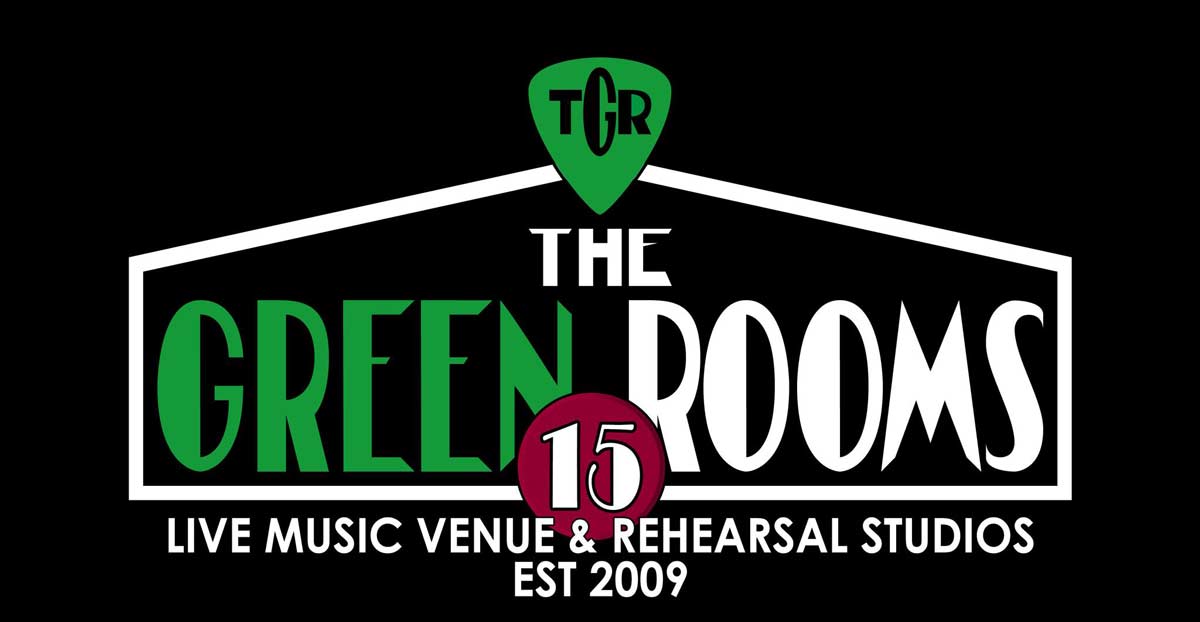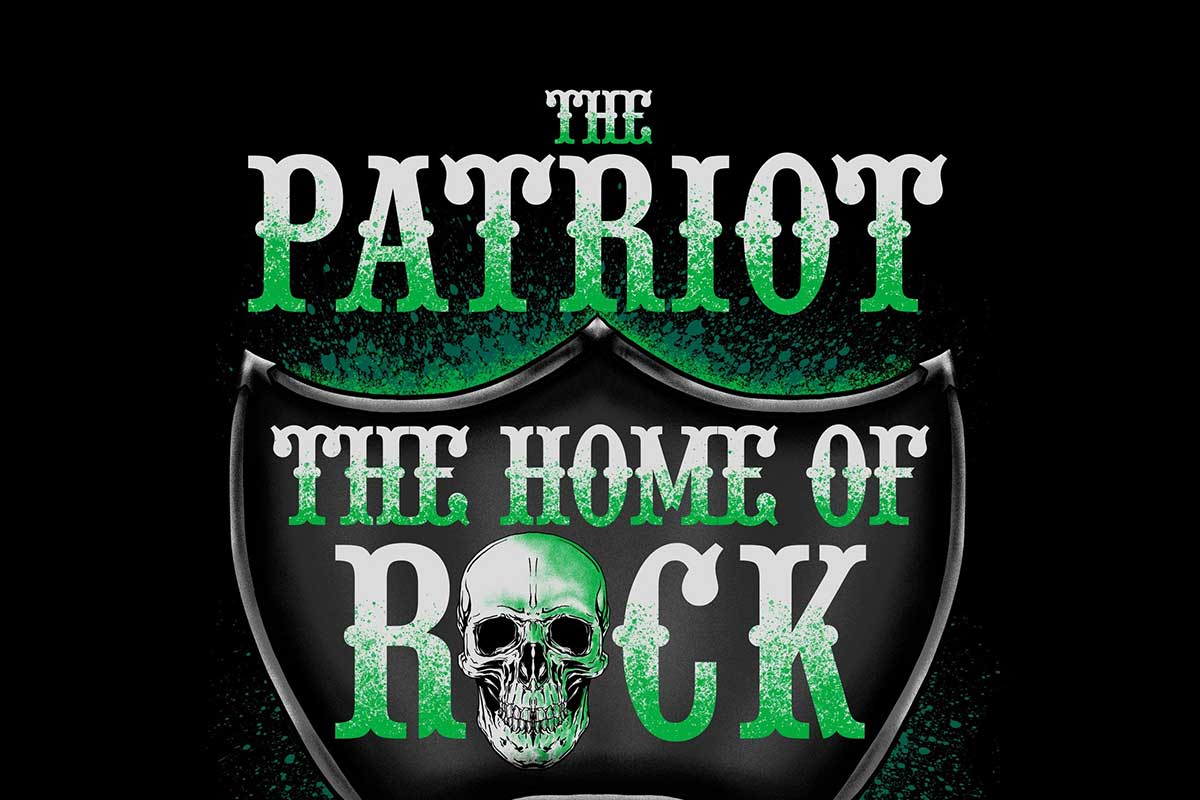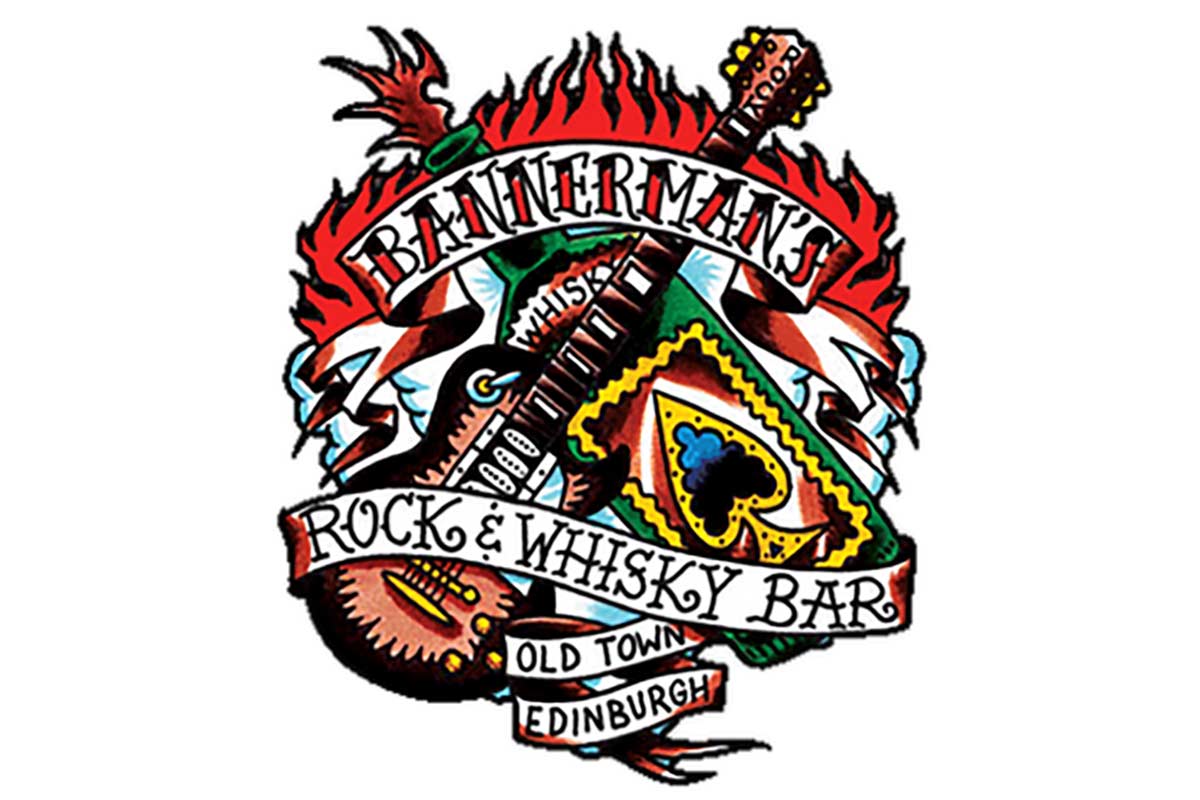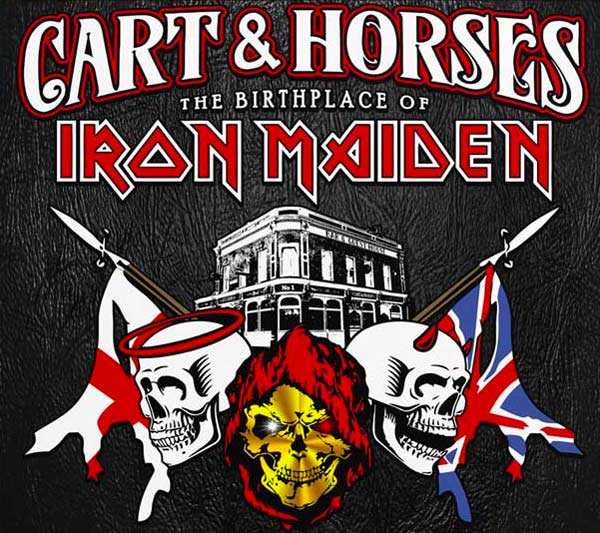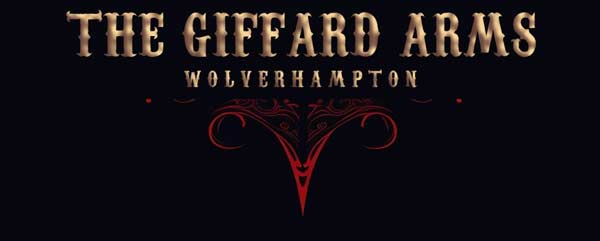Emerging from Germantown, Maryland in 1991, Clutch broke all the moulds, their own distinct brand of rock mixing desert stoner elements with Black Sabbath style heaviness and some lively blues. Adding to this heady brew, the lyrical wizardry of frontman Neil Fallon brings an articulate and sometimes otherworldly voice to their compelling material, their live shows and albums a mind-expanding, full-throttle experience.
Along with guitarist Tim Sult, drummer Jean-Paul Gaster and bass player Dan Maines, Fallon and the band have certainly birthed something unique that defies convention and continues to push boundaries whilst never giving way to the archly fanciful.
One of the hardest touring bands on the scene, the past years have seen Clutch play all over the world, putting 100% in from everywhere from the club circuit to the festival shows. This commitment has seen their loyal fanbase swell exponentially as this wildly individual quartet continues to put out albums that distil their essence into the sacred grooves of vinyl and compact discs worldwide.
There is doubtless something earthy about their approach and appeal, their intelligently crafted and furiously performed material tapping into both the primal and cerebral. With their thirteenth, electrifying long player Sunrise On Slaughter Beach recently released and a much anticipated UK tour just on the horizon, MetalTalk’s Paul Monkhouse caught up with Fallon to shoot the breeze.
Moving from high school to college, Fallon says there were no ambitions of pursuing a career in music. “I studied English because I didn’t know what I was pursuing,” he says, “and the band started simultaneously with that. I sometimes wonder what would have been the case with my life if the band weren’t a thing, and I honestly do not have an answer. Because I was not one of these people that, when I was six years old, decided I would be a veterinarian or something like that.”
Fallon says he had a creative impulse, whether it be writing or art in some form. “I was never a musician, so to speak,” he says. “So I think I fell into this in a lot of ways. Jean-Paul and Tim were the guys in high school who said, ‘I’m gonna be in a rock band’. It was that or nothing. So I went along for the ride with those guys and their focus.”
Tours and albums followed as the snowball continued. But in 2008, they formed the record label Weathermaker Music, which must have been a big step. “It was a huge step,” Fallon says. “By then, and it was indicative of the music industry in general, we had done the major label thing in the ’90s. The last label we were signed with, we went to court to get the monies they owed us. They couldn’t pay us, even though we won. So we wanted our masters back. We were asking ourselves, do we want to do this again and sign to another label? But I think Einstein says insanity is doing the same thing over and over again and expecting a different result.”
Clutch had some support through this, though. “Jack Flanagan, our manager at the time, was very business savvy. He guided us on how to start this label. Then we met Stefan Koster, who worked at Roadrunner. So it wasn’t just the four of us. There were a lot of other actors in that endeavour. It was a revelation to realize that it’s not about trying to sell as many records as possible. It’s about getting the right amount of records to the right people, and maybe slowly, over time, that gets bigger and bigger. If not, that’s okay too. But if you’re able to subsist off of this, that’s a good position to be in.”
Having their label gives them so much autonomy. Jean-Paul recently said that most of the ideas don’t make it – they may try ten things and keep one. With such a huge well of ideas, there perhaps is that luxury of trying various things out.
“Yeah, it’s a bit of a schizophrenic situation,” Fallon says, “because, for years, the record label was sort of an adversary. Now, we’re the record label and the band, so it’s a matter of threading the needle of having all the creative freedom in the world. But that can be a hindrance sometimes. It’s good to have some limitations. Of course, money is usually the number one limitation. You can perpetually try to perfect an album until it never comes out. But it’s ultimately more rewarding. It’s more work, and there’s more risk. But I’d rather blame ourselves for miss happens at this point in our careers than someone else. It’s too easy to blame someone else. But when something goes right, it’s that much more rewarding.”
Clutch has their support network. It’s nice to have all these ideas, but as Neil is aware, any time in the studio costs money. “We were always aware of that,” he says, “but now even more so because, ultimately, that’s something you have to pay back. I mean, not to overstate the obvious, but a major label that pays for the studio, the band, always has to pay that back through the sale of their records. Usually, that never happens because the album doesn’t recoup. But now there are so many middlemen cut out, and it’s easier to do that.
“Also, technology plays a big part in it because we can pretty much figure out what a record is going to sound like in our own studio with our own laptops. And then take it to the pros. We know it frontwards and backwards, so we’re not worried about having to try a song again because I didn’t do it right. This is costing X Amount of dollars an hour doesn’t really figure into it. So it’s a good spot to be in.”
If there were words written that the ideas behind Sunrise On Slaughter Beach would be about social volatility and the division caused by the pandemic, then this could not be further from the truth.
“It was the exact opposite,” Fallon says. “The lyrics are going to, in a lot of ways, carry the tone of a record. I didn’t want it to be about any of those things. I didn’t want it to be about the two years where everyone had the same experience and then come across like, ‘let me tell you about mine’. No one wants to hear that. I sure don’t.
“Also, I found that those confessional-type songs date themselves very quickly. I like the escapism of music, Heavy Metal in particular. The first song we wrote was We Strive for Excellence, which is the most party song on the album. But as time went on and every song wrote themselves, I found it getting darker and darker. My intentions were coming from the head and not the heart, and as things progressed, it became lyrically one of the darker records that we’ve written. That’s probably because the subconscious was flexing. I didn’t want to sound like I was lecturing anybody about anything or, again, trying to sound special. But the music should be sincere and try to concoct a party album.”
Clutch has always struck me as a band that has always decided to plough their own very individual furrow. “Well, thank you,” Fallon says. “I think everyone has their own stories. Each song is a story, you know. Sometimes, you know exactly what you’re talking about. Sometimes you don’t know what the story is, but it just sounds kind of cool. But the listener ultimately interprets it because the movie that plays in their head is the right one. So you kind of have to give it up at some point.”
Tony Clarkin from Magnum never gives away what the lyrics are about and says it’s up to people to interpret in their own way. “I think I have the luxury of being the first one to hear the music instrumentally,” Fallon says, “so I’m the first guy that gets to have the movie in his head and interpret what is in the words. But I’m just one. Then, any fan is still gonna have their own little movie, and I can’t tell them they’re wrong. It’s their imagination.”
There’s a great filmic quality about what Fallon does. Great atmosphere and some of the images he uses possibly goes back to having his BA, with that wonderful command of English.
“I mean, honestly, I love words,” Fallen says. “I think words are like guitar riffs. Even poetry and it doesn’t need music. My favourite songs are when the atmosphere of the music matches the lyrics and when those two things become synchronized, they’re unstoppable. Sometimes I hear a great song, and then I hear the lyrics, and they just seem like throwaways. That’s a waste.”
Clutch have some great atmospheric pieces, particularly on the new album. The closer, Jackhammer Our Names, has a funereal pace, really understated. A beautiful and incredible way to close the album.
“It’s a unique song in Clutch’s repertoire, to sound sophisticated,” Fallon says. “Those lyrics I wrote five or six years ago in long form. I was waiting, tapping my finger for the right music for those words to live in. Tom Dalgety [producer/mixing] was really fixated on this lesser-known Fleetwood Mac song, I’m So Afraid. A killer song. It’s got this dark, minor feel.”
An influence was born. “But, ultimately, Jackhammer Our Names doesn’t sound like that Fleetwood Mac song. I like songs with the idea of limbo. There are a lot of Clutch songs like that, like Gone Cold, Regulator, in some ways, or Jackhammer Our Names and Our Lady Of Electric Light. It’s the particular brand of David lynch melancholy I always liked.”
With tracks like Mountain of Bone and its Gothic-flavoured Black Sabbath, the appearance of the theremin, and the performances of Deborah Bond and Frenchie Davis, Clutch shows development and boundary-pushing.
Deborah provides an elegant and inspiring ending for Mercy Brown. “Tom and I were talking to Deborah,” Fallon says, “at the end of Mercy Brown, we want you wailing. She said, ‘oh, I know what you want. You want Great Gig In The Sky.”
First take, it was nailed. “There’s always something about the manic, kind of, almost anxiety of the very first take that can never be matched by trying to beat it,” Fallon says. “We had been talking about having backup vocals on our records for years, but we were always reluctant because we didn’t want to take two more people on the road with us. But when we recorded Sunrise On Slaughter Beach, we really didn’t know if we were ever going back out on the road. So, well, it’s now or never. That and theremin and vibraphone and all the things that we would have been reluctant to use, normally.”

The upcoming tour will feature Clutch as a four-piece, though as another band member would mean more transport, the team is already maxed out for personnel on the road.
“I love the 90 minutes on stage,” says Fallon. “I don’t love the other 22 and a half hours. I’m spoiled. I’ve been able to travel to a lot of places that some people only dream of. My parents made one trip to Ireland 20 years ago, which they still talk about. Then some morning, I wake up in Dublin at the Temple Bar, and I’m like, oh God, I don’t want to go outside. That’s a really awesome thing to complain about.
“But having said that, I like being at home, you know. I’m a homebody with my family, but I do love the stage for 90 minutes. As far as writing goes, in the middle of it, I lose my hair. It’s like a love-hate relationship. But when there’s that eureka moment where I suddenly realize what a lyric is about, or a guitar riff or Dan, Tim, or Jean-Paul brings an idea, that is very exciting. That is the most satisfying thing in the world.”
Fallon and Clutch have a good relationship with countries on this side of the pond, and sixteen years ago this month, they toured with Motörhead. “I think we’ve become one of those bands that might be bigger in Europe than we are in the United States at this point,” Fallon says, “if you’re judging by room size. I like playing outdoors as long as it’s not at two in the afternoon. The late evening outdoor gig is fun. I like the European festivals, always great people watching. I think there’s an energy when you go into a nightclub, though. Everyone’s just jammed in there and has been drinking alcohol to excess, and you don’t really get that in a cow field.”
That Clutch tour, supporting Motörhead, kicked off in Newcastle on 2 November 2006. “Every day, I was like, We’re on tour with Motörhead in England? What?” Fallon says. “I remember being on the school bus in the sixth grade. There was a kid behind me with a Walkman. I couldn’t believe a Walkman was a real thing, and I could hear this noise coming out of the little tiny headphones. This is the kid in 11th grade who smoked and had a moustache. I said, ‘what are you listening to?’ And he’s like ‘Motörhead’, and it didn’t even compute. Then I saw a Motörhead on the Young Ones. That was the first time I ever saw Motörhead.
“It was great, a bit of a rock ‘n’ roll fantasy camp. Despite their reputation, it was a very disciplined crew. They were very much like it’s the show and nothing else, and if what’s going on interferes with the show, that thing has to go. So it was educational as well.
“My favourite venue in the world, though, is Red Rocks in Colorado. It’s just a geologic formation that no human could have engineered, and it’s a bit of a sacred space. I used to live in Colorado, so I saw some shows as a spectator. There are just these two massive stages, two massive rock formations. I’m not a geologist, and I don’t know what the proper word for them is, but they act basically as a bass canon. A lot of times at outdoor shows, you don’t get that hit in the chest, but in Red Rocks, every seat is in the middle of this giant subwoofer, and it’s beautiful weather usually. The only drawback is the altitude. If you’re not prepared for it and out of shape, it’ll kick your ass.”
Neil Fallon works well on stage and is an incredible communicator. There is almost the Southern baptist preacher about his performance and delivery. It’s very powerful and gets people drawn in and involved.
“I’ve heard that,” he says. “I think a lot of that is just nervous energy on my part. I find it easier to sing moving my hands. I think I get that from my mother. I remember one time at the dinner table, she was talking, like this [waves hands]. My dad, I don’t know what possessed him to do this, but he said, ‘you know what, stop moving your hands, sit on your hands and continue with what you’re saying’. She put her hands underneath her legs and couldn’t finish a sentence. So I think it might be genetic as well.”
The Clutch UK Tour kicks off in Glasgow on 11 November, and in touring the UK, Neil appreciates the size of the country and the fewer miles you have to cover.
“In America, we are used to travelling 500-600 miles in between shows. Here, we can get on the bus, crack a beer and by the time we are done with that beer, we’re pulling up to the next gig. Which is also very nice.”
With limited tickets remaining for several UK dates, visit https://www.bandsintown.com/a/1867-clutch for details.
November
No Events
December
No Events


